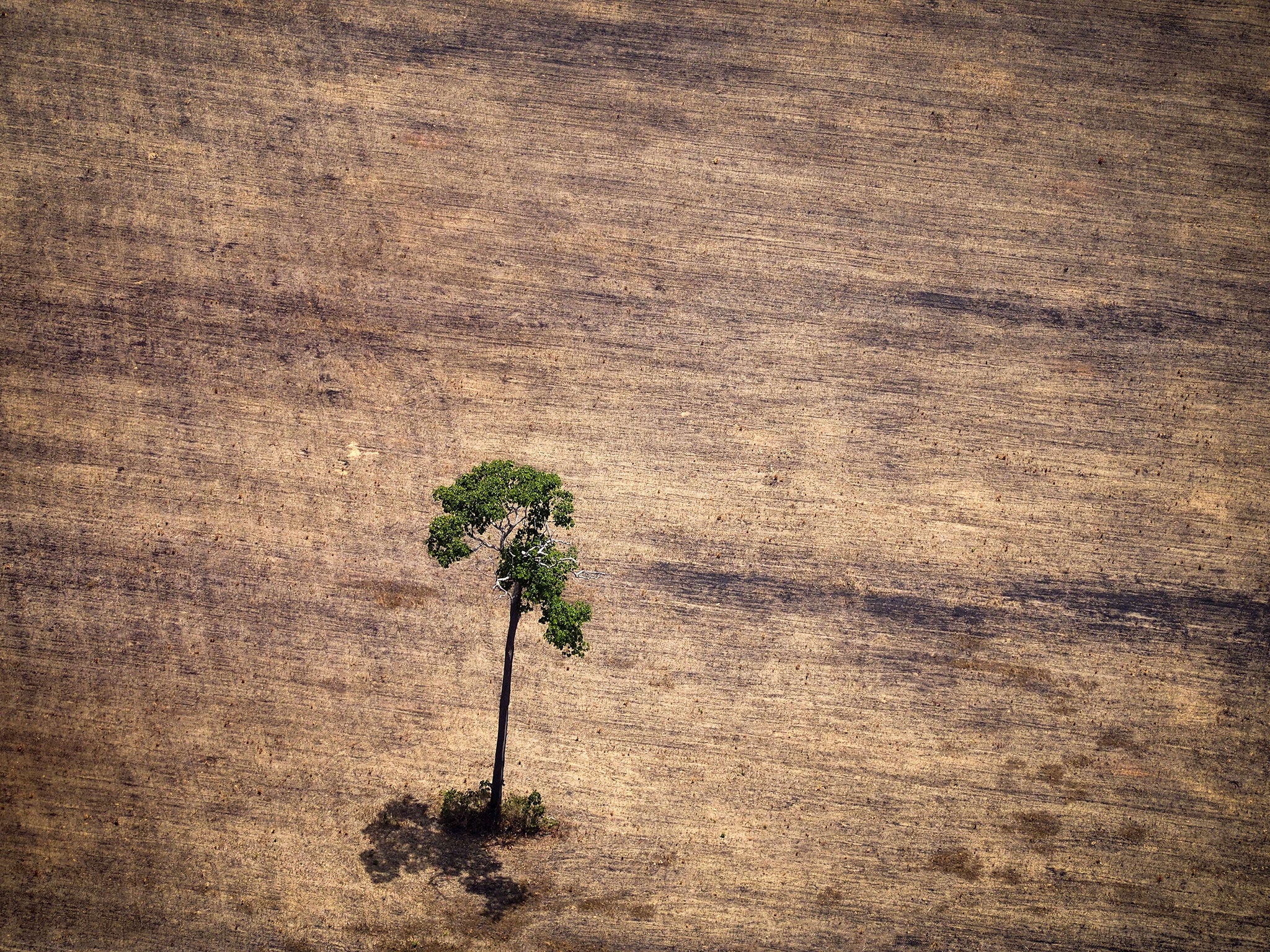The book industry fells billions of trees – it’s down to authors to demand to be printed on recycled paper
The climate column: My dream is that within five years all books are either e-books or printed on 100 per cent post-consumer recycled paper


I have campaigned on paper recycling since the 1990s, when I ran a local community charity paper recycling scheme, as councils did not do home recycling in those days.
So, when asked to write my first book 17 years ago by a small publishing house, I signed the contract only after they had included a clause guaranteeing the book was on 100 per cent recycled paper. I did the same with my second book, with the multinational publisher Hachette Livre. They understood that my integrity depended on practising what I advocated.
My third book,The Prostitute State: How Britain’s Democracy Has Been Bought, was self-published and printed by the Footprint Workers Co-operative on 100 per cent post-consumer waste paper. As a single tree produces about 25 books – though estimates vary – by my calculations this meant I had saved about 800 trees for the 20,000 printed copies of my books.
This shows us a sober reality of one of our nation’s favourite pastimes: reading. Over the coming decade, the global book industry is on-track to bulldoze woodlands more than four times the size of Wales – up to a staggering 3.4 billion trees.
How did I get that statistic? Well, there is no single body collecting book sales – the World Intellectual Property Organization does it for Western countries and its total was 4.7 billion books in 2019. If you take the annual sales for India and China separately and then divide these by the average cost of books across these two markets, you reach about 3.8 billion; the equivalent of 8.5 billion books sold per year – or a bit more than one per person. Over 10 years, that would give us a total of 85 billion. Divide that by 25 books per tree and it equates to 3.4 billion trees per decade.
As each mature tree, such as a UK native broadleaf tree, stores about a tonne of carbon dioxide over its life, this means the potential destruction of a carbon store equivalent to about 10 times Britain’s entire annual carbon emissions.
In addition, as most paper-industry carbon emissions come from the release of carbon stored in forest soils when trees are felled – as well as paper mill processing and its disposal in incinerators and landfill, it is clear this has the potential to be a major carbon catastrophe.
In 2019, a major environmental group I was involved with was having a new book published by one of the UK’s leading publishing houses. My colleagues boasted that it was to be printed on FSC paper but I panicked, as I knew that this would be the usual virgin Scandinavian paper that the book industry had used for decades.
I pressed them to ask the publisher to print the books on post-consumer recycled paper and they kindly invited me to a meeting with them. The day before that meeting, the publisher sent an email claiming that as recycled paper fibres are shorter than virgin fibres, this makes the paper less strong, supple and durable; which, they said, is, “fine for loo roll and photocopying but not so good for paper going through printers and binding machines at speed, and for having a long reading life!”.
At the meeting, I presented the publishers (who assured us they had the best paper buyers in the world and trusted their advice) with copies of my three previous books. They were 15, 10 and three years old, respectively, and all in perfect condition. I pointed out that this proved their buyers were wrong – and was delighted when, within a week, the publisher confirmed they would publish this new book on recycled paper. The environmental group saved approximately 4,000 trees as 100,000 copies of the book were printed.
One of the first things I do when I buy a book, by any environmental author, is to look at the imprint page to see if it is printed on recycled paper. It guts me to see that many of these books are printed on what is called “FSC Mixed” paper. This means that it is printed on virgin paper with unspecified percentages from a mix of certified and uncertified forests.
In 2018, Greenpeace International announced it would not be renewing its membership in the Forest Stewardship Council (FSC).
Matt Daggett, Global Campaign Leader for the Forest Campaign at Greenpeace International, said: “We encourage companies to firstly reduce their use of virgin fibre and use recycled and responsible alternative fibre whenever they are available. When virgin wood fibre is required, we still encourage the use of 100 per cent FSC, with additional due diligence.”
Greenpeace spokesperson Savio Carvalho has also told me: “We would urge all companies to reduce their use of virgin fibre first and foremost, wherever possible using 100 per cent post-consumer recycled or responsible alternative fibre.”
I once asked a leading UK environmentalist why almost all of their books were printed on virgin paper but the reply was, “it’s difficult”. But what that says to me is how important it is that we practise what we preach – whether we are environmental campaigners, or the prime minister.
Boris Johnson believes the UK can be president of the forthcoming crucial COP 26 climate summit in November and urge other countries to not build new coal mines, fossil-fuelled power stations and massively expand aviation when this is exactly what the government is supporting.
My dream is that within five years all books are either e-books or printed on 100 per cent post-consumer recycled paper. This would not only save billions of trees and millions of tonnes of CO2 but would enable the restoration of forests teeming with wildlife, rather than the vast, lifeless industrial plantations that have led to the threatened extinction of so many plant, animal and bird species.
Writers across the world need to unite and demand – like I did – a guarantee in all future book contracts that they will be on 100 per cent post-consumer recycled paper. If just one of the big publishers decided to use only post-consumer recycled paper, the rest of the industry would quickly follow.
With the current climate crisis, we do not have time to mess about. If you are a writer, get in touch with XR Writers Rebel and volunteer to help. Or, if you are a reader, you could email your favourite author urging them to demand that all their future books are on recycled paper.
We need to be adding trillions of trees to the planet’s forest cover – not bulldozing billions. The time to act is now.
Join our commenting forum
Join thought-provoking conversations, follow other Independent readers and see their replies
Comments





Bookmark popover
Removed from bookmarks